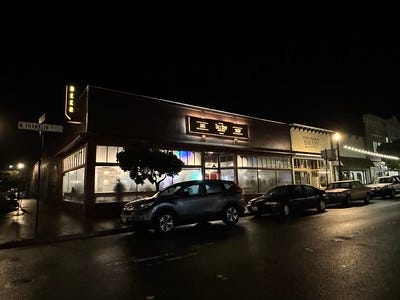Fort Bragg Creates Vacant-Building Program
Council delays fee vote; explores vacancy tax
The Fort Bragg City Council voted 5-0 Tuesday to introduce an ordinance creating a registry and upkeep standards for long-empty commercial properties, a step city leaders said is aimed at curbing blight and boosting the downtown business district.
The Fort Bragg City Council voted 5-0 Tuesday to introduce an ordinance creating a registry and upkeep standards for long-empty commercial properties, a step city leaders said is aimed at curbing blight and boosting the downtown business district.
Staff is directed to add Chapter 6.30, “Vacant Buildings and Lots,” to the municipal code. This requires commercial units that sit vacant or abandoned for 90 consecutive days — or show clear neglect such as broken windows, graffiti or disconnected utilities — to register with the city, maintain the premises and provide a 24-hour local contact posted on the property. Staff said enforcement will focus first on buildings in the Central Business District.
Although the ordinance text also references vacant lots, staff and council members said immediate enforcement is aimed at buildings; some well-kept lots are in active community use. A proposed “no trespassing” posting will not be part of the ordinance; required signage is limited to management and contact information and must be at least 18 by 24 inches, staff clarified after questions from the dais.
Mayor Jason Godeke and multiple council members framed the step as part of a multi-year push to revitalize Main and Franklin streets, citing recent cleanliness efforts, lighting and special events. “We spent some time, some money, and I think it’s paying off,” Councilmember Lindy Peters said. “And this is kind of the final piece.”
Public comment reflected both support and skepticism. A property manager said “the people we deal with, they like to have their properties rented.” And he referred to a vote earlier in the meeting to amend the requirements of the installation of automatic fire sprinkler systems in new buildings and in any remodel of buildings larger than 5,000 square feet.. “If somebody wants to fix up those buildings, they’re going to now have to sprinkle them,” he said, noting the additional cost was not an incentive.
The council did not adopt related fees Tuesday. On the advice of the city attorney, members directed staff to return with a properly noticed fee resolution at the next meeting.
Separately, the council authorized staff to research a vacancy tax — a long-term policy tool respondents to a summer survey ranked among preferred actions — and to bring the issue to committee in the second or third quarter of 2026. Mayor Jason Godeke noted that San Francisco’s “Empty Homes” tax has faced significant legal hurdles.
Lessons from San Francisco’s Vacancy Tax Challenge
San Francisco voters approved Proposition M in 2022, establishing a tax on residential units left vacant for more than 182 days in buildings with three or more units. The measure was intended to address the city’s housing shortage by pushing owners to rent unused apartments.
However, in October 2024, a San Francisco Superior Court judge ruled the “Empty Homes Tax” unconstitutional, agreeing with landlords and property groups who argued that the measure violated state and federal law. The plaintiffs — including the San Francisco Apartment Association, the Small Property Owners of San Francisco Institute, and the San Francisco Association of Realtors — contended that the law unlawfully compelled property owners to rent out their units, amounting to a taking of property without just compensation.
The court also found the tax preempted by California’s Ellis Act, which bars local governments from forcing landlords to rent or lease property they wish to withdraw from the rental market. Additional claims cited violations of due process, equal protection, and privacy rights, and alleged that the measure’s exemptions unfairly favored some types of property owners over others.
San Francisco has appealed the ruling, and enforcement of the tax is suspended pending the outcome. The case is expected to set precedent for other jurisdictions considering similar measures, including Fort Bragg. City staff said Fort Bragg’s review will include a detailed legal analysis of the San Francisco case to avoid potential pitfalls.
Next steps include rolling out the vacant-building registry, beginning proactive code enforcement on nuisance conditions downtown, and developing incentives and temporary-use options to help activate empty storefronts. A staff survey found 95% of respondents view vacant storefronts as a concern and want the city to act within the next 12 to 18 months.



